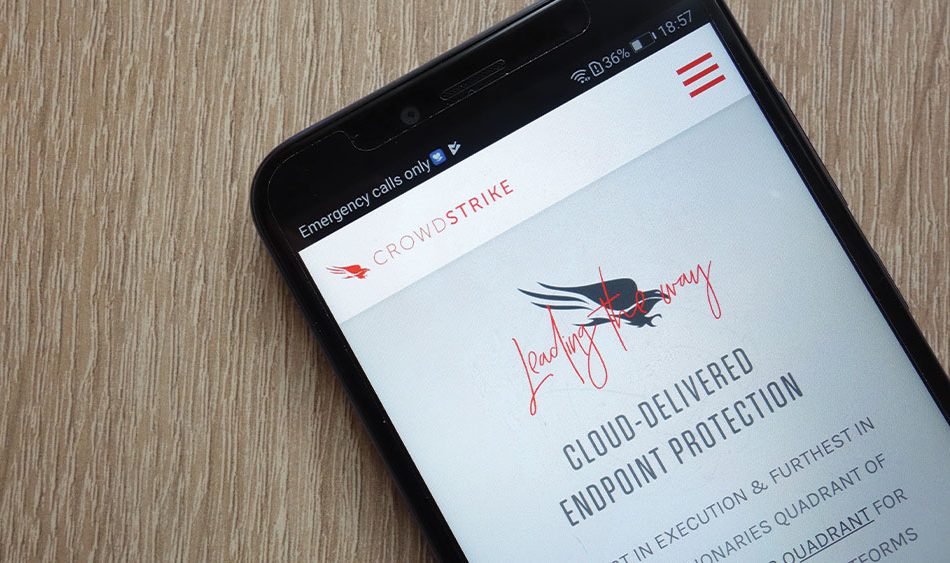CrowdStrike Stock Today: As Earnings Approach, This Double Butterfly Trade Could Fly Into Profit Territory
CrowdStrike (CRWD) is trying to recover after getting whacked by sellers on the global outage following a faulty update in its cybersecurity software applications for users on Microsoft operating systems. So it may be a great time to consider a double butterfly options trade in CrowdStrike stock.
↑
X
Nvidia Earnings Are A Key Test For The Stock Market Rally. Here’s What To Expect.
First, the stock market background. Market gyrations continue. Although the Cboe Market Volatility Index (VIX) has come down, the volatility of the VIX, as measured by the VVIX, continues to rise. We have the FOMC meeting on interest rates on Sept. 18. And most importantly, we have earnings for CrowdStrike scheduled for Aug. 28 after the market close.
Let’s look at both sides of a potential move in CrowdStrike stock after the earnings. We want to enter a trade that will deliver an opportunity for gains no matter what the outcome.
The earnings release will bring traders into the market. Although we don’t know the direction, we are able to estimate the magnitude of the move using ATR, or average true range, as measured on the weekly chart. We also employ the implied moves that market makers have priced into the move.
CrowdStrike Stock Today: The Setup
This trade involves a long call butterfly and long put butterfly. First, the long call butterfly gets positioned so the ‘long wing’ of the trade gives us a likelihood of returns. Meanwhile, we use the short wing to finance part of the play in CrowdStrike stock.
To construct the long call butterfly, you set up a long call spread (a bullish position) and a short call spread (a bearish position) that share the middle strike. Let’s form as follows:
- Buy to open one CRWD Sept. 13-expiring call with a 290 strike price
- Sell to open two CRWD Sept. 13 300 calls
- Buy to open one CRWD Sept. 13 310 call
The call butterfly trade costs approximately $0.75 per share, or $75 per set of contracts, based on recent trading. This happens to serve as the maximum loss for this position. The maximum profit reaches $9.25 outside of commissions.
Keep in mind that total profits will begin to erode if CrowdStrike stock stays above 300.
Next, we position a long put butterfly so that the ‘long wing’ of the trade gives us a likelihood of returns. Again, we use the short wing to finance part of the trade.
The Bearish Butterfly
In the long put butterfly, create a long put spread — a bearish position — and a short put spread as a bullish position. Both spreads share the middle strike price of 220.
- Buy to open one CRWD Sept. 13 230 put
- Sell to open two CRWD Sept. 13 220 puts
- Buy to open one CRWD Sept. 13 210 put
The put butterfly in CrowdStrike stock costs $0.64, making the maximum possible profit at $9.36. Here, total profits will begin to erode if the price of CRWD stays below 220.
If we take both sides of these trades, then we will harbor a maximum loss of around $1.39, or $139 per set of butterflies. This opens room for a profit all the way up to $8.61, or $861 per spread position.
Defending The Trade
Stock hunting using fundamental and price strength within the IBD methodology is where I firmly plant myself under the current economic backdrop. I use technical analysis to find ideal buying opportunities in conjunction with the tools for strength seen on IBD.
The goal of taking the unbalanced butterflies like the one above is to take advantage of higher implied volatility as the undercurrent of markets shift to participate in an outsized move.
Let’s identify key chart levels in CrowdStrike stock. The upside resistance zone sits right around 300. I also see support near 230. In other words, this price level should bring buyers into the chart.
The strategy result provides three choices to exit the trade. One, sell the entire butterfly spread after earnings once the middle strike of either spread is tested. We could consider setting an alert for both 300 and 220. Why? We are looking for either butterfly to deliver positive results. Two, sell the spreads once the trade hits your loss threshold as determined by personal risk. This will happen with extreme movement.
Finally, sell the spread into the week before expiration, but only if all is going well and you have decided to hold the trade closer toward the end of expiration. I have had many a trade go sideways, taking it down to the wire and not capturing gains. So I do not advise this strategy.
Anne-Marie Baiynd is a 20-year veteran trader of stocks, options and futures and is the author of “The Trading Book: A Complete Solution to Mastering Technical Systems and Trading Psychology.” She holds no positions in the investments she writes about for IBD. You can find her on X at @AnneMarieTrades
YOU MIGHT ALSO LIKE:
Find The Best Growth Stocks Via This Highly Stringent Screen
Want More Options Trading Strategies? Go Here




Leave a Reply